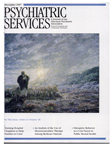As physicians, we tend to believe in our own immortality. It's no great mental leap from being invested by society as a healer to harboring notions of omnipotence. When the healer is wounded, wounded in the very center of his or her nervous system, the unspoken idea of immortality is shaken.
This I learned through personal experience. I had treated individuals recovering from traumatic brain injury for years, even fancied I understood something about the subject. Then one day a giant icicle fell on my head, and I learned something about mild head injury. There is nothing like personal experience to facilitate learning.
Short of personal experience, from which we should all be spared, the next best source of information about the experience of brain injury is in reading first-hand accounts. When those accounts are written by or on behalf of experienced clinicians we can expect to learn even more.
Dr. Kapur has amassed a fascinating collection of first- and third-person accounts of physicians and psychologists who suffered brain damage. He has organized these accounts into tales of memory loss, language loss, visual disorders, Parkinson's disease, brain tumor, stroke, head injury, and epilepsy. Each topical group is preceded by an introduction reviewing the relevant clinical neuroscience and followed by a summary. A scholarly commentary follows each individual account, both clarifying the diagnosis and highlighting the lessons learned.
The accounts come from contemporaneous and historical sources, some from famous clinicians, others from otherwise unpublished practioners (in one case a medical student describing her neurologically induced visual hallucinations). Included are Karl Lashley's detailed account of his migrainous scotomas, John Hughlings-Jackson's reports of the seizures of three physicians, Harold Klawans' report of the transient global amnesia of a surgeon he treated, and many anonymous reports. The entire volume concludes with lessons for patient management and staff education and information about the process of recovery from brain injury, drawn from the approximately 50 accounts in the collection.
Various accounts of the experience of neurological illness have appeared (
1,
2,
3,
4), and some have included the recollections of experienced observers. However, the current collection is unique both in its scope and in its focus on making this knowledge useful for sensitive treatment of our patients. Although my own injury was trivial by comparison to the ones described, I was painfully reminded that the patient's experience is not always as the textbook would have one believe. Our patients can be valuable teachers if we will only listen.
Injured Brains of Medical Minds would make excellent supplementary reading for medical and nursing students, for neurology, psychiatry, and neuropsychology trainees, and especially for those in the field of rehabilitation. Our skills are enhanced by understanding the patient's perspective on the illness and taking to heart recommendations advanced by those who have crossed the boundaries of healer, patient, and observer and have been thoughtful enough to have recorded their observations for posterity. As a neuropsychiatrist, I find Dr. Kapur's collection to be a rich vein of descriptive material that adds considerably to my knowledge of the syndromes discussed.

